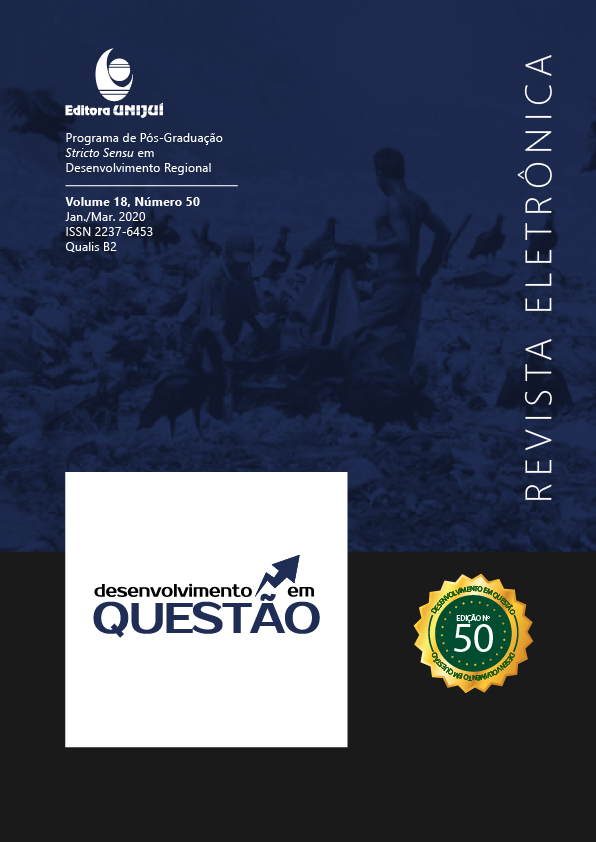Recife, City of People? A study based on the archeology of Foucault
DOI :
https://doi.org/10.21527/2237-6453.2020.50.24-40Mots-clés :
Discourse,Résumé
This article aims at analyzing the discourse involved in the city council program called “Recife, city of the people”, from Foucault's archeology of knowledge perspective. The corpus of this research consists of six videos available on the Facebook® page of the city council of Recife in 2014, when government agency released the slogan "Recife, Cidade das Pessoas”. The study is justified by the need of understanding how the political discourses are spread and how these discourses have no explicit assumptions. We believe that a better design of the influence of discourses, along with further clarification of social significance exercised by them, can contribute to a more democratic social life, which will be accessible to the entire population. For the present study, no theory was previously defined. The option for this construction enables the non-interference of external factors guiding the analyses. Data was analyzed without theoretical influences, so that the theoretical constructs emerged from the analysis rather than the reverse. However, the vision of authorship in relation to the concept of speech interferes with the analysis and serves as a theoretical lens through which data will be displayed. For results, two discursive formations were found: (1) the protection of the Government and (2) healthy lifestyles practices, with includes social, cultural and physical. This discursive formation is founded on the pillars of bio-politics and sustainability, quality of life and social change. It was noticed that the program has a goal it is to influence people's opinions about public spaces and mobility in a municipality.
Téléchargements
Publié-e
Comment citer
Numéro
Rubrique
Licence
Ao publicar na Revista Desenvolvimento em Questão, os autores concordam com os seguintes termos:
Os trabalhos seguem a licença Creative Commons Atribuição 4.0 Internacional (CC BY 4.0), que permite:
Compartilhar — copiar e redistribuir o material em qualquer meio ou formato;
Adaptar — remixar, transformar e criar a partir do material para qualquer fim, inclusive comercial.
Essas permissões são irrevogáveis, desde que respeitados os seguintes termos:
Atribuição — Atribuição — os autores devem ser devidamente creditados, com link para a licença e indicação de eventuais alterações realizadas.
Sem restrições adicionais — não podem ser aplicadas condições legais ou tecnológicas que restrinjam o uso permitido pela licença.
Avisos:
A licença não se aplica a elementos em domínio público ou cobertos por exceções legais.
A licença não garante todos os direitos necessários para usos específicos (ex.: direitos de imagem, privacidade ou morais).
A revista não se responsabiliza pelas opiniões expressas nos artigos, que são de exclusiva responsabilidade dos autores. O Editor, com o apoio do Comitê Editorial, reserva-se o direito de sugerir ou solicitar modificações quando necessário.
Somente serão aceitos artigos científicos originais, com resultados de pesquisas de interesse que não tenham sido publicados nem submetidos simultaneamente a outro periódico com o mesmo objetivo.
A menção a marcas comerciais ou produtos específicos destina-se apenas à identificação, sem qualquer vínculo promocional por parte dos autores ou da revista.
Contrato de Licença (para artigos publicados a partir de 2025): Os autores mantêm os direitos autorais sobre seu artigo, e concedem a Revista Desenvolvimento em Questão o direito de primeira publicação.











